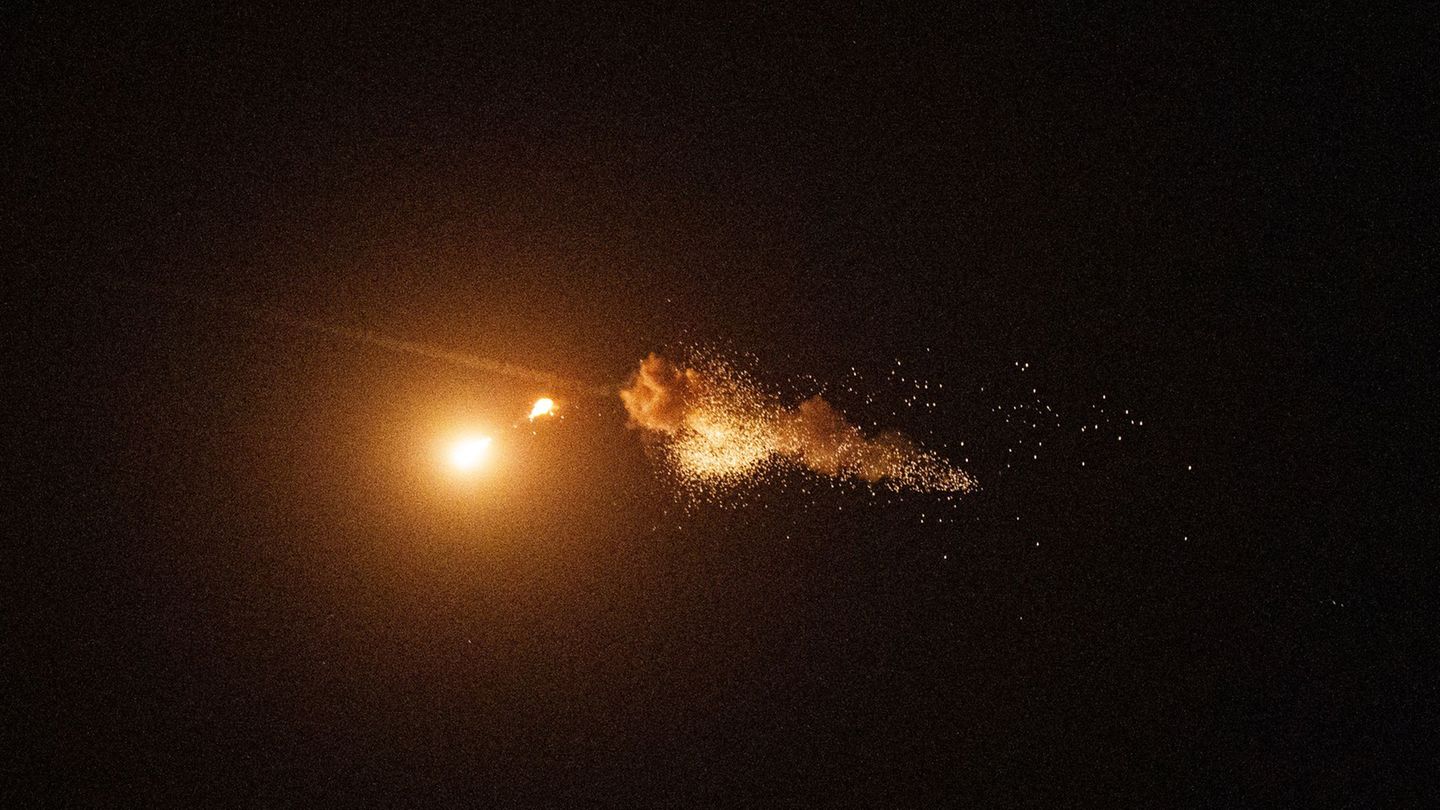Israel has set out to eradicate the possibility of suffering attacks such as those by Hamas on October 7, which left 1,200 dead, according to the latest balance sheet that updated the figure to 1,400, and the capture of some 240 hostages, including twenty Argentine nationals.
But he has not been clear on his plans for Gaza, where 2.3 million Palestinians live.
Netanyahu said this week that, with Hamas overthrown, Israel will assume security in Gaza for a time, but that it will not occupy it again, as happened from 1967 to 2005, when it withdrew its troops and withdrew its colonies.
“The future is unpredictable. What there are are some hypotheses of what to do with Gaza,” Mario Sznajder, doctor in Political Science and professor emeritus at the Hebrew University of Jerusalem, told Télam.
First of all, however, Hamas will have to be dismantled, according to Israel’s plan.
Its air and ground offensive is focused on northern Gaza, an area full of tall buildings and densely populated. Hamas has its main positions in underground tunnels and usually places others near schools, hospitals and mosques.
“There is no doubt that Israeli military strength will eventually prevail, given its evident superiority. But at a tremendous cost in human and material terms,” said Professor José Abu-Tarbush, from the University of La Laguna, Tenerife, Spain. .
And as the deaths in Gaza multiply, furthermore, the Israeli search for security could bring, on the contrary, insecurity.
“Hamas dealt Israel a very painful blow. If they come and kill 1,400 people in one morning, then people go crazy, seek revenge, and the same thing will happen on the other side,” Sznajder warned.
In the immediate future, furthermore, a monumental humanitarian and reconstruction effort will be needed, which is estimated to cost billions of dollars. Even before the Israeli offensive, 80% of Gazans depended on UN aid.
Amid periodic outbreaks of violence, Gaza has been in a state of permanent reconstruction, complicated by broken promises of donations and controls to prevent Hamas from seizing construction materials.
Rebuilding Gaza “will be essential for obvious reasons of survival. But it will be a very complex, slow and expensive task, not without obstacles on the part of Israel,” Abu-Tarbush, author of several books on Palestine and the Arab world, told this agency. and Islamic.
“Israel has bombed and destroyed 45% of the residential homes (in Gaza). Without forgetting that its very poor infrastructure has also been the object of Israeli attacks; and that the military intervention has not yet concluded,” he noted.
Aside from the military challenge, destroying Hamas in its entirety would involve removing the movement’s non-combatants who run schools, hospitals, public services or hold positions in the judicial system.
“There are hundreds of thousands, the entire public apparatus,” according to Sznajder.
In the medium term, some point to a possible coalition of Arab countries that could serve as an interim security and government force in Gaza, with support from the United States, the European Union and the UN.
“The hypothesis of an Arab military body, led by Saudi Arabia and the Arab States of the Gulf, is possible,” more so than Egypt or Jordan, Sznajder said, although he clarified that Israel would condition it to normalize relations with the participating Arab countries.
Abu-Tarbush doubts that it is an international organization, since Israel “has always avoided internationalization, despising international institutions such as the UN.”
“Israel gets along much better with Arab authoritarian regimes. From this perspective, Egypt seems a suitable candidate, despite its reluctance; but they could offer it some economic or other incentives,” he said.
In the longer term, if Hamas is removed from power in Gaza, the obvious candidate to replace it is the Palestinian National Authority (PNA), which rules the West Bank.
The ANP was created following the 1993 Oslo Accords with Israel, hoping to lay the groundwork for creating a Palestinian state in Gaza, the West Bank and east Jerusalem.
But in 2007 the ANP was driven out of Gaza by Hamas, and the West Bank and East Jerusalem have been, since 1967, under military occupation by Israel, which refuses to withdraw its colonies.
His return to Gaza does not look easy.
To begin with, the ANP has shown its willingness to take charge of Gaza, but only within a comprehensive settlement with Israel on Palestine, which includes the West Bank and East Jerusalem.
Then, there is the symbolic question.
The ANP “is not willing to reach Gaza on an Israeli tank, that is, without a firm political solution or commitment that implies that effort. It is a question of dignity and legitimacy,” said Abu-Tarbush.
The ANP has not held presidential elections since 2005, when Mahmoud Abbas, 87, was elected. The only legislative election it called, in 2006, was won by Hamas.
In the West Bank, “the ANP is greatly discredited due to its high levels of corruption and inefficiency,” Sznajder said.
“If he had the task of starting to build the Palestinian State, he did it very badly. So there is a basic legitimacy problem and that cannot be fixed with an election. There has to be a generational change” in the Palestinians, he added.
Finally, there is the question of capacity.
The ANP has serious budget problems, and has had a hard time protecting Palestinian civilians from settler attacks in the West Bank, which intensified after those by Hamas in Israel.
Israel is holding back tens of millions of dollars in taxes collected by the PA from Palestinians in the West Bank.
The viability of its very existence has been called into question in recent years, not to mention its ability to take over Gaza after a devastating offensive.
Speaking to reporters last week, US President Joe Biden reiterated his support for a peace agreement and the creation of a Palestinian state.
Before the Hamas attacks on Israel, hopes for this agreement had long been dashed, although many still see it as the only viable way to resolve the conflict.
“The two-state alternative is the only possible way out of this mess,” Sznajder said.
For Abu-Tarbush, military strategy is not a substitute for political strategy.
And he continued: “I fear that Israel, in addition to satiating its revenge, is only trying to restore its image of invulnerability and deterrent power that was damaged on October 7.”
“As long as the structural causes of the conflict are not resolved, it is to be feared that new cycles of violence will continue to reproduce in the future, as has happened until today,” he added.
“Israel cannot limit itself, as it has done until now, to managing the conflict; to ignoring it with the illusion that it could circumvent the question of Palestine and establish relations with the Arab states without dealing with the Palestinians. This model has collapsed,” ended.
Source: Ambito




